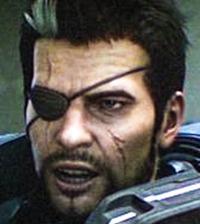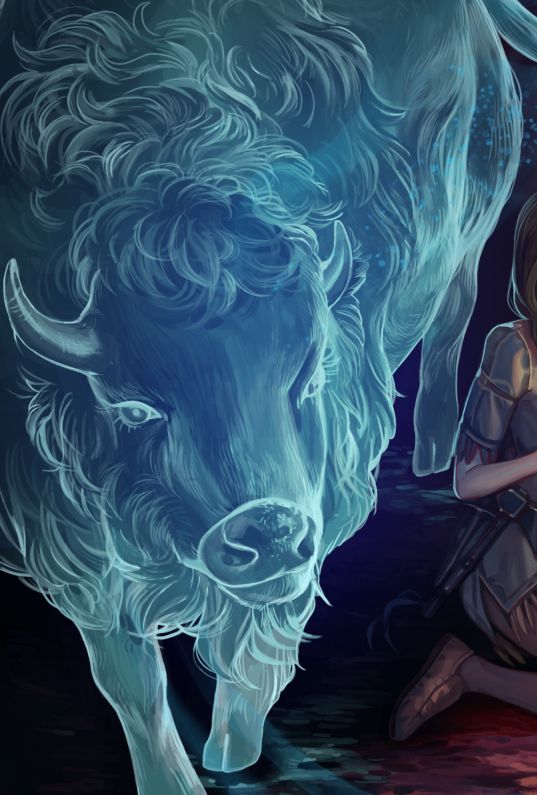Question Minh's Rules of Space Opera
- CrazyMinh
-
 Topic Author
Topic Author
1. The ship is the soul of your story. Just look to the USS Orville, the USS Enterprise, the SSV Normandy, the Battlestar Galactica. All of them are more than just vehicles. Each is a character in its own right, and is the soul of any character-driven sci-fi story. Hell, this extends to more than just space opera. Look at the Serenity or the Millennium Falcon.
2. Be believable with your pseudoscience. Just slapping together some
3. DO NOT say "God Did It". Period. Motherfrakking Season 4 proved that well enough.
4. Or for that matter have some spiritualistic subtheme/plot without the correct setup and execution. This has been the detriment of many a sci-fi tale. Namely BSG. Because why have rational writing when you can have literal deus ex machinas?
5. If you're going to do scenes in outer space, have the decency to make it silent. While not a priority, it is appreciated when you don't have robotic arms whirring loudly when the camera is meant to be in outer space. If need be, muffle the sounds, so that you at least have the excuse that the camera is outside, but the mike is inside the pressure vessel.
6. No. Goddamm. Spores. What the frak do you have to be on to come up with something so frakking stupid???
7. If you're going to have aliens, at least have the decency to not put the actors under so many layers of prosthetics that they can't emote, let alone speak properly or act.
8. If you need to explain something complicated, have the common decency to at least lay it out over several lines, rather than having a "let me tell you the story of my people" moment.
9. If you are going to do a exposition dump, make it something the character acting as a stand-in for the audience has no business knowing. Having someone who should know that they are a scientist studying a alien artifact that crashed in the middle of nowhere a specific time ago have their own job explained to them as a means of conveying plot information to the audience in a specific sci-fi show that is so bad that it is theorised to be deliberately bad is annoying. For obvious reasons.
10.
That's all for now.
You can find my stories at Fanfiction.net here .
You can also check out my fanfiction guest riffs at Library of the Dammed
- null0trooper
-

CrazyMinh wrote: The ship is the soul of your story. Just look to the USS Orville, the USS Enterprise, the SSV Normandy, the Battlestar Galactica. All of them are more than just vehicles. Each is a character in its own right, and is the soul of any character-driven sci-fi story. Hell, this extends to more than just space opera. Look at the Serenity or the Millennium Falcon.
I think that you are focusing too much on just the vehicle. It's not the flying or crashing box that's the character but the crew. With or without that piece of technology, the crew of a ship has its own slightly unique culture (vis-a-vis the other crews in the overall organization) and a gestalt memory.
In the sense of narrative, the ship as a setting can be used as a supporting character as much as the Whateley Academy is used. However, it's those that live and work in it together that have agency, not the rust-bucket or tin can on-screen.
Forum-posted ideas are freely adoptable.
WhatIF Stories: Buy the Book
Discussion Thread
- Erianaiel
-

null0trooper wrote:
CrazyMinh wrote: The ship is the soul of your story. Just look to the USS Orville, the USS Enterprise, the SSV Normandy, the Battlestar Galactica. All of them are more than just vehicles. Each is a character in its own right, and is the soul of any character-driven sci-fi story. Hell, this extends to more than just space opera. Look at the Serenity or the Millennium Falcon.
I think that you are focusing too much on just the vehicle. It's not the flying or crashing box that's the character but the crew. With or without that piece of technology, the crew of a ship has its own slightly unique culture (vis-a-vis the other crews in the overall organization) and a gestalt memory.
In the sense of narrative, the ship as a setting can be used as a supporting character as much as the Whateley Academy is used. However, it's those that live and work in it together that have agency, not the rust-bucket or tin can on-screen.
It is not that the tin can is the only character, or even the most important character. But it needs to be a character.
Enterprise was this big shining city in space, that sold the principles of the federation just by existing.
The millenium falcon was that small run down ship full of corners that contrasted against the giant flying cheese wedges of doom (tm) to sell how outclassed the rebellion was against the empire (and never mind that technically it was not part of the rebellion, for the audience it was clear that it was because luke and obi wan were in it).
Serenity was carefully designed to be even smaller and more rundown than the millenium falcon, but extra care was given to make sure that each of the humans had a room in it that reflected both the nature of a space ship and their personality. And that included the 'work rooms' as well. Plus of course that comfortable living room that so many scenes took place in for full crew scenes. And of course the 'opposing' ships of the inner worlds were again giant shining cities in space to reinforce how small and vulnerable Serenity and her crew were.
Battle star galactica, in its reboot, managed to convey the image of 'beaten down warship fleeing for survival' much better than the original series did. But both missed the ball on the whole military aspect that would be expected and as such the ship never became something the audience was quite as invested in to see it survive.
That said, a lot of space opera does not have a ship and its crew as focal point. The genre is not defined (such as it is) by the common trope of 'a ship and its crew having adventures in space'. A melodramatic, often large scale, story set in space, against a backdrop of vast wars or empires and featuring grand adventure and a knight in shining (or tarnished) armour as the pivotal character.
Rogue one is a space opera, like all star wars movies (but it is also a war movie for its third act) but it focusses on the unlikely heroes, not on their 'life in space', and because of that the ship is not relevant (and is simply a captured shuttle they need to get from point a to point b at the close of the second act).
- Kristin Darken
-

That is why the ship matters in a space opera... just as the mount / steed of the classical hero is.. and its not just the difference of the 'good guys' and their plucky little ship vs the 'bad guys' and their monstrous doom machines. The steed is part of the story... a NAMED part of the story. The Millenium Falcon was named. the Death Star was named. Vader's super-star destroyer was not. Neither was Lukes X-wing. This is actually one of the elements of the space opera that breaks Star Trek away from true sci-fi (and why the Battlestar wasn't given the same sort of 'humanity' as Serenity or the Falcon).
I disagree with the point about science fiction (and especially space opera) not mentioning religion. Some of the best sci-fi engages in religion as an aspect of humanity's process of learning/understanding and our psychology of belief/faith. Often giving us an opportunity to buy in to the belief of the system and then showing it from an external perspective in which we see how the religion became what it was and how with progress, had to become something else. Technology as divinity. Progress as belief. Collapsing cultures as sources of myth and divinity for a means of trying to keep alive what was through dark times and the next rise to progress.
Spores... I get where your complaint is coming from ... but its not spores that you need to be upset about. Spores are a great gimmick for a sci-fi story. Some of the best sci-fi disaster / infection stories have spores. The Andromeda Strain comes to mind. What you are really upset about is a plot device that was hokey to start with and was overused as a deus ex machina. Personally, I thought the Discovery spore device to be... mediocre. It could have been portrayed better... after all, they were talking about quantum effects... there was no reason for macro level containers of 'stuff'. But at the very least, considering how much of the plot they hinged on it, they should have made sure the science wasn't so blatantly created by the beancounters in the marketing department. But Star Trek has enough history of crossing out of 'true' science (looking at you Q) that there is no real reason to be as upset about the spores as you regularly get. That's 100% fanboi negativity... not a real complaint.
And... the rest of this has little to do with space opera and just quality writing. And as I've pointed out before, you have to remember how much of television and film is no longer written by actual writers. A lot of this is just thrown together from existing plots and dialogue by marketing guys who know that if they mention certain topics, they can sell specific advertisements and keep viewers watching long enough to get their payoff from the ad revenue.
Fate guard you and grant you a Light to brighten your Way.
- Kettlekorn
-

He didn't say it shouldn't be mentioned. He said that it shouldn't be used as a theme or plot point without actually putting in the effort to do it justice.Kristin Darken wrote: I disagree with the point about science fiction (and especially space opera) not mentioning religion.
- Rose Bunny
-

High-Priestess of the Order of Spirit-Chan

